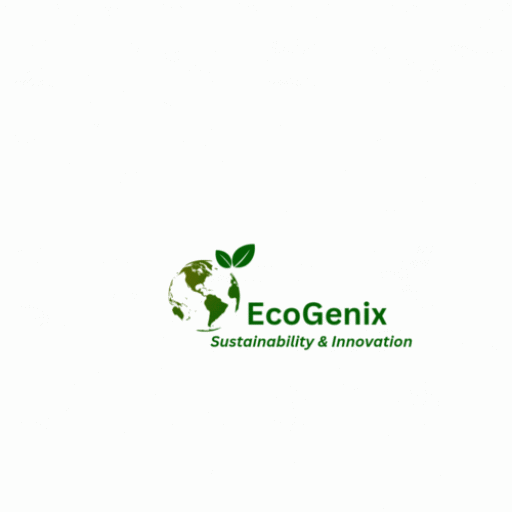Introduction
Sustainable Development Goal 16 (SDG 16) is a crucial pillar of the United Nations’ 2030 Agenda for Sustainable Development. It focuses on promoting peace, ensuring justice, and building strong institutions at local, national, and international levels. This goal recognizes that without peace, stability, and fair governance, the efforts to achieve other Sustainable Development Goals (SDGs) would be hindered. SDG 16 aims to create an enabling environment where people can thrive, societies can prosper, and nations can collaborate in a just and secure world.
Understanding SDG 16: The What and Why
SDG 16 is dedicated to addressing a wide range of issues that contribute to a peaceful and just society:
- Peace and Stability: Peace is not just the absence of conflict, but the presence of justice, fairness, and respect for human rights. Violent conflicts, terrorism, and crime undermine progress, hampering economic development and social well-being.
- Justice and Rule of Law: Access to justice and accountable institutions are essential for the protection of human rights, the enforcement of laws, and the promotion of equality. Without proper legal frameworks, societies face discrimination and abuse.
- Strong Institutions: Effective, transparent, and accountable institutions are the backbone of a functioning society. Institutions need to be responsive to the needs of citizens and ensure inclusive decision-making.
- Reducing Corruption: Corruption erodes trust in institutions, slows economic growth, and perpetuates inequality. Combating corruption is fundamental to achieving sustainable development.
How SDG 16 Can Be Achieved
Achieving SDG 16 requires a multi-faceted approach that involves governments, civil society, international organizations, and individuals. Some strategies include:
- Conflict Prevention and Resolution: Diplomacy, dialogue, and mediation can prevent conflicts from escalating and help to find peaceful solutions.
- Promoting Access to Justice: Ensuring that everyone has equal access to legal resources and a fair justice system is essential. This includes legal aid programs, community-based dispute resolution, and education about legal rights.
- Strengthening Institutions: Building effective, accountable, and transparent institutions requires reforming public administration, increasing capacity, and promoting citizen engagement in decision-making processes.
- Combatting Corruption: Enforcing anti-corruption laws, encouraging transparency in public transactions, and promoting ethical behavior are crucial steps in reducing corruption.
Integration with Other SDGs
SDG 16 is deeply interconnected with other goals:
- Poverty Reduction (SDG 1): Peace and stability are prerequisites for eradicating poverty. In conflict-affected areas, poverty is more prevalent, making peace-building efforts vital.
- Quality Education (SDG 4): Children cannot receive quality education in unstable environments. Achieving peace ensures children can attend schools safely.
- Gender Equality (SDG 5): Gender-based violence often escalates in conflict situations. Peaceful societies are essential for achieving gender equality and empowering women.
- Sustainable Cities (SDG 11): Safe and secure cities are crucial for sustainable urban development. Effective institutions can manage urbanization challenges.
Progress and Measures Implemented Worldwide
Many nations have taken significant steps towards achieving SDG 16:
- Norway’s Judicial Independence: Norway consistently ranks high in the World Justice Project’s Rule of Law Index due to its robust judicial independence, efficient legal system, and protection of fundamental rights.
- Kenya’s Mobile Courts: Kenya has employed mobile courts to bring justice to remote areas, improving access to justice for marginalized populations.
- Global Peace Index: The Global Peace Index assesses peace levels across countries, encouraging governments to invest in peaceful societies.
Benefits, Concerns, and Solutions
Benefits:
- Economic Growth: Peace and stability attract investment, stimulate economic growth, and create job opportunities.
- Social Cohesion: Just societies ensure that all citizens have equal rights and opportunities, promoting social cohesion.
- Global Collaboration: Strong institutions facilitate international cooperation, allowing nations to work together on global challenges.
Concerns:
- Conflict Complexity: Many conflicts are deeply rooted in historical, political, and social issues, making resolutions complex.
- Institutional Capacity: Building strong institutions requires time, resources, and political will, which might be lacking in some regions.
Solutions:
- Early Warning Systems: Developing and utilizing technology-driven early warning systems can help prevent conflicts from escalating.
- Education and Awareness: Promoting human rights education and raising awareness about justice-related issues can empower individuals to demand change.
Conclusion
SDG 16 embodies the vision of a world where peace, justice, and strong institutions prevail. By addressing conflicts, ensuring access to justice, and fostering good governance, we pave the way for sustainable development and a brighter future for all. Achieving SDG 16 requires collaboration, innovation, and a commitment to building societies that prioritize the well-being and rights of every individual. As we progress towards 2030, the pursuit of SDG 16 stands as a testament to our dedication to creating a world where peace and justice flourish.
ARTICLE BY: WAYNE TOTA
Food Security and Climate Change
waynetota9@gmail.com
0601133196239
Visit for more articles:
https://sites.google.com/view/foodsecure-sustain-agriclimate/home.
